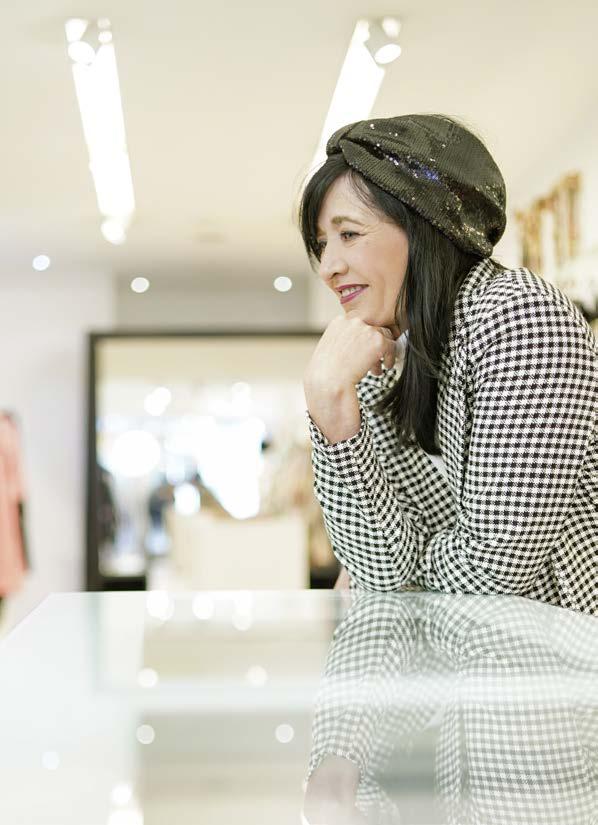
3 minute read
Lifestyle Loop
“Impact 01: Re-
MINIMUM made” is the title of Minimum’s unisex capsule collection. It is entirely circular and thus ground-breaking in the fashion industry, because Minimum is among the first companies to have succeeded in developing a product-to-fibre-to-product cycle. Whereas previously only cutting scraps and textile production waste could be recycled, the Danish brand now utilises unsold stock, which is shredded into fibres and, by adding organic cotton, processed into yarn and fabrics, and subsequently into new styles. This allows Minimum to return unavoidable overproduction to the cycle. Minimalist, unique, and sustainable are the qualities that best describe the collection featuring oversized hoodies, jumpers, shirts, and jog pants. Given that the surplus stock used is limited in volume and to certain colours, the result is inevitably a limited collection based on the individual colours of the source material.
•Innovation with no-waste policy: Minimum has launched its first circular collection. •A huge step towards the commercialisation of circularity.


REVOLUTIONARY RECYCLING TECHNOL-
OGY: after shredding the unsold goods, the fibres are blended with organic cotton before being spun into yarn, made into fabrics, and finally transformed into new styles.

Kristina Nissen, Design & Buying Manager at Minimum


Not merely another cotton programme, but a limited-edition circular collection made of heavy sweat fabrics.
Kristina Nissen, Design & Buying Manager at Minimum.
What does Minimum do to avoid overproduction?
Kristina Nissen, Design & Buying Manager at Minimum: We try to plan the actual demand as precisely as possible, but it is simply impossible to hit a bull’s eye. Therefore, reusing unsold goods commercially is a huge opportunity. Steen Engelbrecht, CEO of Minimum: We focus on developing inter-seasonal products and improving our Essentials collection to ensure greater durability. Furthermore, we have created a model for our Essentials that prevents the accumulation of unwanted stock in the stores and delivers in line with actual demand instead. This eases the burden on the stores’ cash flow and simultaneously reduces the amount of unsold products on the sales floor.
Sustainable innovations are initially an investment rather than a profitable business. What drives you?
Steen Engelbrecht: Common sense. One can compensate for negative impact by planting a tree, fair enough. We, however, believe it is more sensible to clean up your own mess. As an industry, and as consumers, we share the duty to act responsibly. Naturally, we cannot ask consumers to buy six months ahead to avoid overproduction. What we can do is find ways to revive unsold, obsolete stock. This allows us to be a little more environmentally responsible.
Which challenges are you facing?
Steen Engelbrecht: The biggest challenge is our fundamental structure of bringing the product from production to the consumer. We cannot produce on demand as the consumer, of course, desires full freedom of choice, which inevitably results in surplus of some pieces. We need closer cooperation between the various link in the value chain such as consumers, retailers, wholesalers, and manufacturers. There already is a willingness to develop a better circular impact.
Steen Engelbrecht, CEO at Minimum.
Gamechanger: Minimum teamed up with innovators Textile Pioneers and Valérius 360 to develop a product-to-fibre-toproduct cycle.










